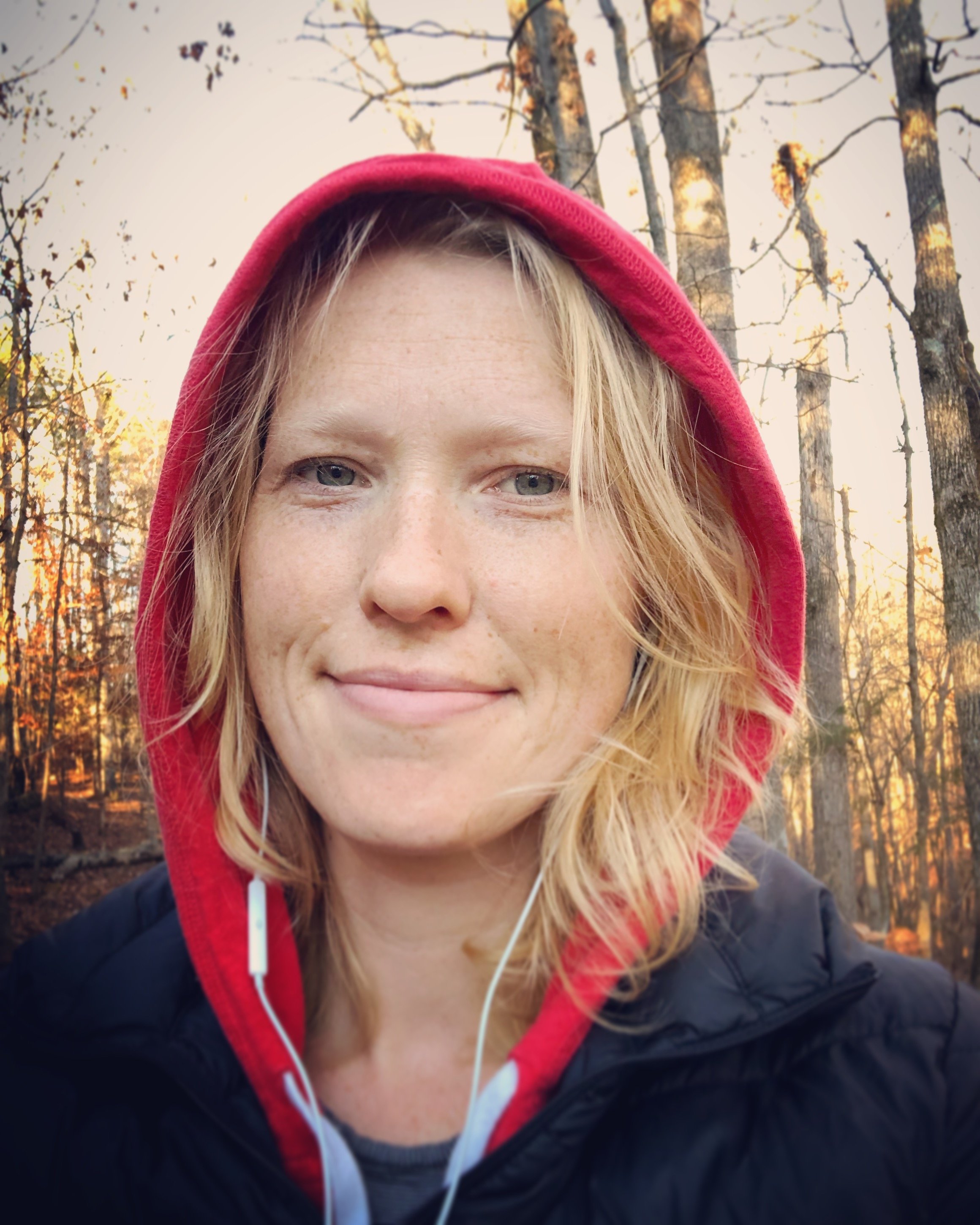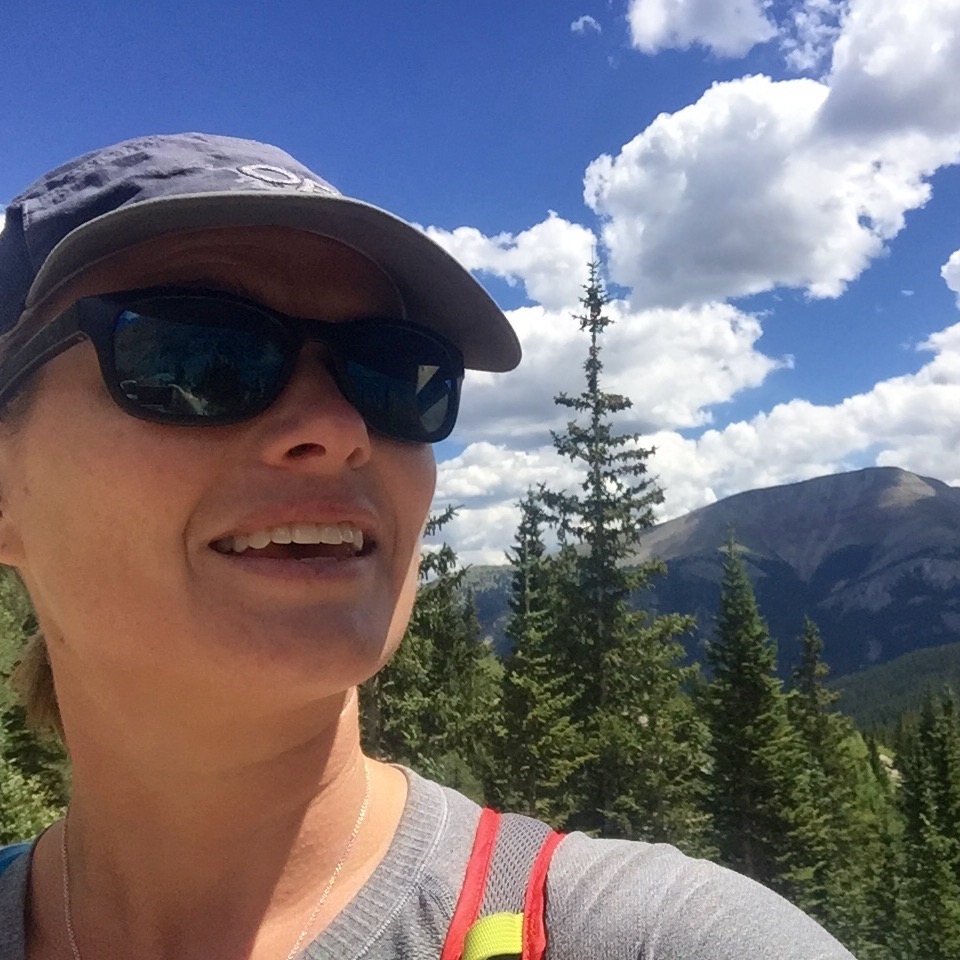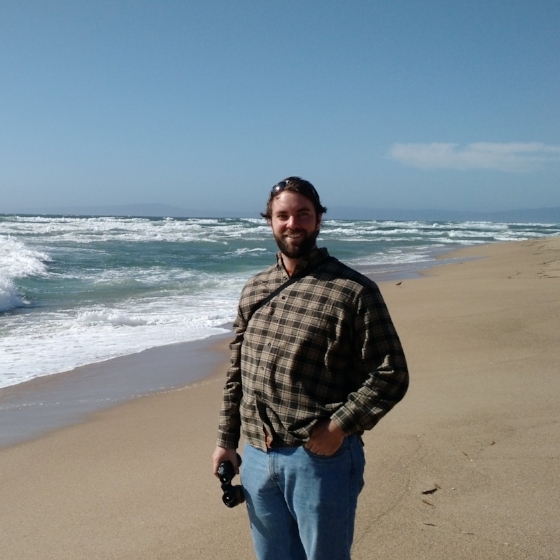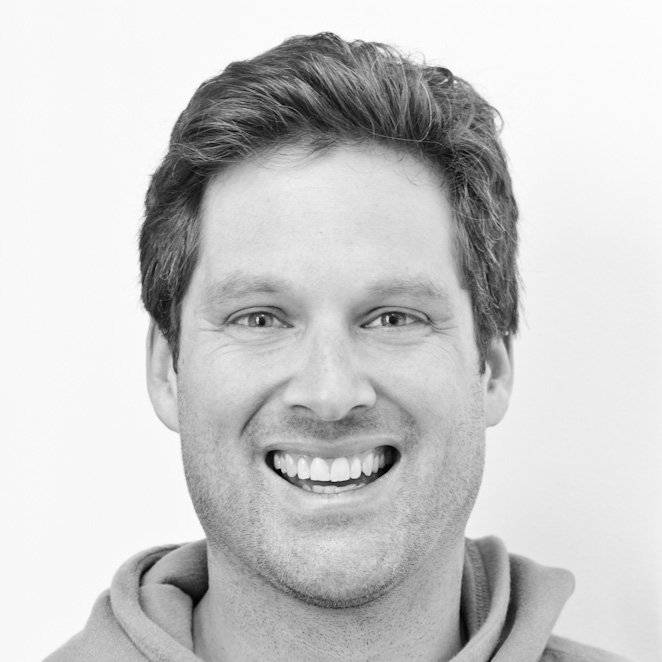Dr. Grant Murray
As a marine social scientist, my lab's principal objective is to continue to lead and participate in theoretically-informed, problem-oriented and community-relevant research projects that effectively mobilize knowledge in several focal areas, including: 1) the relationships between protected areas and adjacent communities; 2) seafood production systems; and 3) the relationships between local ecological knowledge, science, and social-ecological change. In my work I draw on theoretical insights specific to these three areas, but also cross-cutting theory and concepts drawn from sociology, anthropology and geography including political ecology, local/traditional ecological knowledge, and well a bundle of allied concepts that help frame our thinking about social impacts and dynamics, including values, well-being, and poverty.
Current researchers and doctoral students
Julia Bingham, Duke University Marine Lab
Julia is a doctoral student interested in coastal human-nature relationships and in developing equitable governance and management strategies to support environmental health and human well-being. Julia primarily draws from fields of political ecology and critical human geography, and is informed by literature in environmental sociology, queer ecologies, Indigenous feminisms, and a prior background in conservation and coastal ecology. Their dissertation research focuses on the role of multiple knowledges and relationships of power in the governance of salmon on the west coast of Vancouver Island, BC. Julia conducts the work with the permission, guidance, and colaboraiton of Tla-o-qui-aht First Nations and Ha'oom Fishing Society, with intent to support the Nuu-chah-nulth First Nations' path towards self determination through agency in fisheries governance.
Website: juliaabingham.com
Robin Fail, Duke University Marine Lab
Robin is a doctoral student at the Duke University Marine Lab with interests in political ecology and human geography. Her research is guided by an interest in how social systems and marine ecosystems interact, the governance structures used to moderate those interactions, and the processes for integrating diverse values, knowledge systems, and priorities into policymaking. She is interested in how human-environment relations are enacted and understood differently in the face of competing values. Her dissertation research focuses on the role of discourse in constituting the politics and policies related to aquaculture development and the equity implications of policy tradeoffs in this sector.
Dr. Saul Milne, University of Victoria
Saul Milne is from the Village of Cheam, a member of the Pilalt Tribe. He has worked in the field of natural resource management for 15 years, largely focusing on the resource/state/indigenous peoples nexus. He is interested in the intersection of protracted, social and ethnic based conflict and natural resource co-management and in developing strategies and approaches to the elimination of distributional inequities and structural violence. Saul is conducting his research on fisheries management and political ontologies in collaboration with the Tla-o-qui-aht, on Vancouver Island's west coast. In addition to pursuing his doctoral studies in Geography, Saul specializes in group facilitation that takes him across Canada to work with indigenous groups and fisheries.
Currently: Strategic Advisor for Ha’oom Fisheries Society
Michele Patterson, University of Victoria
Michele is a Professor in Vancouver Island University’s Geography Department, and a PhD Candidate in Geography at the University of Victoria. She is exploring social-cultural characteristics found along the value chain in the BC salmon farming sector. Before beginning an academic career in 2012, Michele was involved in resource management, community economic development and conservation in British Columbia for over 25 years including as a Director with World Wildlife Fund (WWF) Canada.
Chelsea Boaler, Marine Institute of Memorial University of Newfoundland
Chelsea Boaler is the first PhD student accepted into the Fisheries Science program at the Marine Institute of Memorial University of Newfoundland. She will be involved with integrating multiple knowledge types to better understand capelin dynamics in Canadian North Atlantic waters under the co-supervision of Drs. Marie Clément and Grant Murray. Chelsea will be working closely with fishing and Indigenous communities along the North and South Shores of Labrador and the Quebec Lower North Shore region to better understand changing capelin dynamics.
Rachelle Beveridge, University of Victoria
Rachelle lives on a farm in Bella Coola, BC, where she moved to complete her PhD fieldwork with the Nuxalk Nation’s Stewardship Office. Since then, she has helped to coordinate an extensive community-engaged project documenting Nuxalk knowledge about eulachon (Thaleichthys pacificus), a locally-extirpated anadromous smelt with great cultural and ecological significance. Rachelle’s PhD research reflects on the project process and product, and the relationships between eulachon, local stewardship, and community well-being.
Current Masters Students
Past Lab Members: Phds and Post-Doctoral researchers
Dr. Dana Baker,
PhD in Marine Science and Conservation, Duke University Marine Lab
Dana successfully defended her dissertation in the Spring of 2022. Her dissertation research focused on the interactions between the wellbeing of small-scale fishers and marine protected areas (MPAs) in Tanzania. Building on this work, Dana’s post-doctoral research is working to characterize the human wellbeing impacts and outcomes of large-scale marine conservation initiatives around the world. As a marine social scientist, her interests are in the fields of environment and development, specifically surrounding the human dimensions, and social outcomes, of marine conservation programs, like MPAs. She draws from diverse social science literatures and incorporates theories of power, government, resistance, and subject creation into her work. She has an MSc in Environmental Science from Yale University, a BS in Environmental Science from the University of San Francisco, and was a Peace Corps Environment Volunteer in Tanzania.
Currently: postdoctoral fellow at the Marine Ethnoecology Lab, University of Victoria
Dr. Luke Fairbanks,
PhD in Marine Science and Conservation, Duke University Marine Lab
Luke Fairbanks is a human geographer and environmental social scientist. His research explores human-environment interactions, focusing on ocean and coastal spaces, resources, governance, and policies. His primary work explores the broad range of values and attitudes people associate with seafood production in North Carolina. His other research explores the human dimensions of large marine protected areas, critical perspectives on marine spatial planning in the United States, and the development of US marine aquaculture policy.
Currently: Assistant Research Professor in the Division of Coastal Sciences at the University of Southern Mississippi’s Gulf Coast Research Laboratory
Dr. Andrew Agyare
Andrew Kyei Agyare (PhD) holds a Research Masters Degree in socioeconomic information for natural resources management from the International Institute for Aerospace Survey and Earth Sciences, (ITC) Enschede, the Netherlands and a PhD degree in Geography, University of Victoria, B.C. Canada (2013). Andrew championed incorporation of community conservation into Ghanaian Protected Area Management systems generally and currently leads Ghana’s growing Community Resource Management Area (CREMA) program.
Currently: Operations Manager and co-head of the Collaborative Resource Management Unit within the Wildlife Division of the Forestry Commission of Ghana.
Dr. Jessica Blythe
Jessica works at the intersection between the land and the sea, between resilience thinking and critical social theory, and I am fascinated by how communities respond to change. Drawing on theories from human geography, resilience, and common pool resources, she aims to make space for local voices to contribute to conversations about natural resource management in order to build systems that foster the capacity for both ecological sustainability and social equality. Jessica received her PhD in Geograph from the University of Victoria in 2013, then took a PDF position at the ARC Centre of Excellence for Coral Reef Studies, in collaboration with WorldFish.
Currently: SSHRC Postdoctoral Fellow, University of Waterloo
Greg Duggan, University of Cape Town
With a background in Social Anthropology, Greg has a keen interest in combining interdisciplinary thinking with participatory action research in marine social-ecological systems. His PhD research since 2015 has focused on the traditional commercial linefishery of the southern Cape coastal region of South Africa. Working with linefishers, community members, as well as teachers and learners in rural, underprivileged schools, the work has focused on the co-development of strategies to understand and address pressing local social-ecological challenges.
alexie rudman, 2017-2019. CEM.
Currently:
cassandra nieman, 2017-2019. CEM.
Currently:
lily huffman, 2017-2019. CEM.
Currently:
Maggie chory, 2017-2019. CEM.
Currently:
Kelli palaka, 2017-2019. CEM.
Currently:
nick becker, 2016-2018. CEM.
Currently: Winthrop p. rockefeller ocean program intern at the billfish foundation.
whitney roberts, 2016-2018. cem
currently: Seafood science intern at oceana.
Dr. Carleigh Randall, 2012-2014. Post doctoral Fellow. Vancouver Island University.
Currently: Professor at Vancouver Island University.
Dr. Linda D’Anna, 2010-2013. Post doctoral fellow. Vancouver Island University.
Currently: Research Associate at UNC Coastal Studies Institute.
Dr. Patricia MacDonald, 2013. postdoctoral fellow. Vancouver Island University
CURREntlY: Lecturer, University of Waterloo, Canada.












